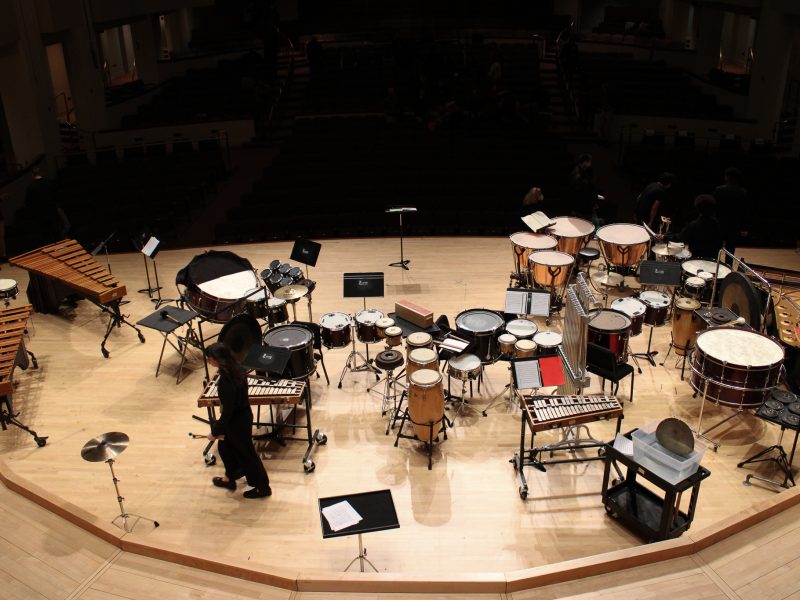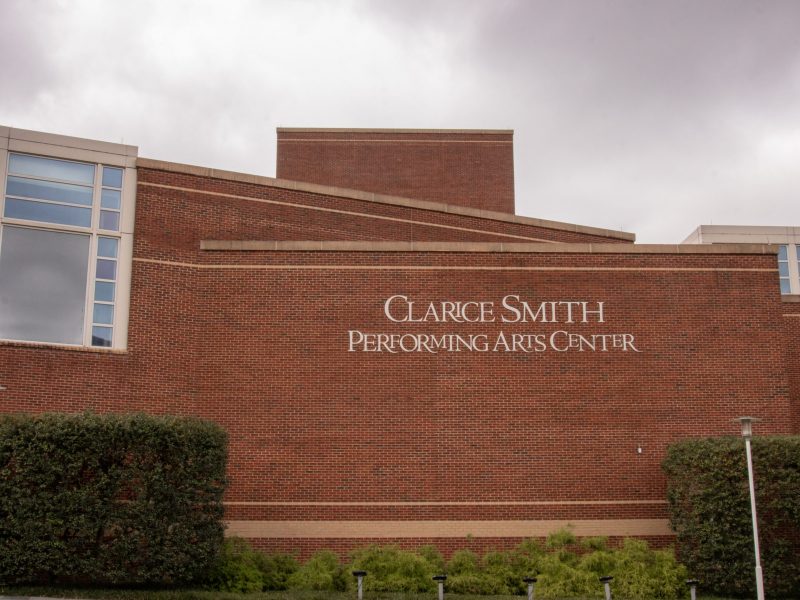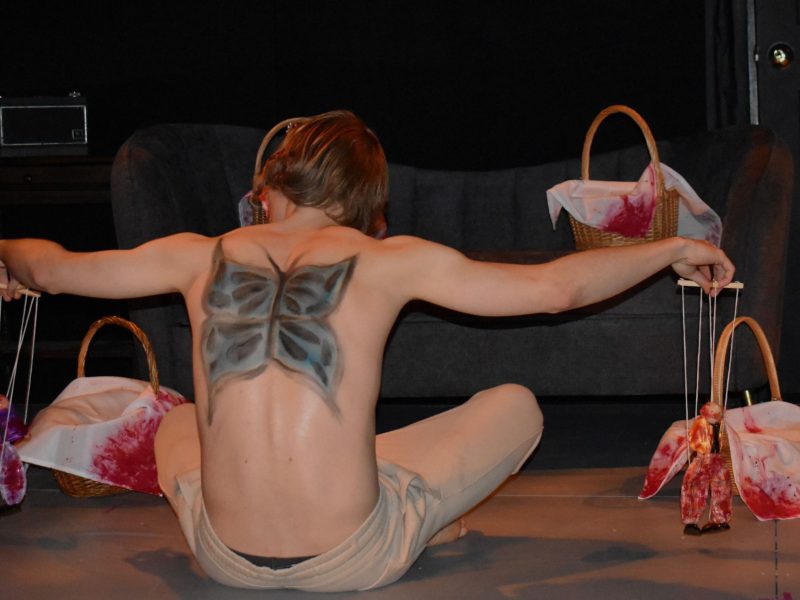Queens of Sheba began slowly when actress Muki Zubis entered from stage left at the Kogod Theatre at The Clarice Smith Performing Arts Center.
The audience watched as the downtrodden actress began a subdued rendition of “Respect” by Aretha Franklin. Suddenly, the song was brought to life as three other actresses burst onto stage with a new vibrant energy, singing along and uplifting the number.
The play, which opened Friday evening at The Clarice, centers around four Black women, called the Queens, who navigate life while deeply aware of the struggles they face for their intersectional identities.
With repetitive and rhythmic references to the ways they put up with daily microaggressions, the Queens add a touch of humor to the seriousness of misogynoir present in the play, which is loosely based on an incident in 2015 when a London nightclub denied two Black women entry on the basis of their race and weight.
The play, written by Jessica Hagan, has amassed a cult following in the United Kingdom since its first performance in 2017, according to Soho Theatre touring producer Maddie Wilson. Soho Theatre is working in collaboration with producers at the performance art company Nouveau Riche to tour the play in the United States, Wilson said.
“When it’s on the U.K., people are coming to see have seen it before, or they’re bringing friends, or they’ve heard a lot about it and they kind of know what the vibe is going to be, and people come to it like they’re coming to a party,” Wilson said.
Soho Theatre and Nouveau Riche first presented Queens of Sheba in the U.S. at the Under the Radar festival in 2023 in New York City, Wilson said. After the success of last year’s festival, Soho Theatre and Nouveau Riche brought the play back to Under the Radar and arranged a short tour in Oklahoma City as well as at the University of Maryland, according to Wilson.
“It’s just a couple of stops, but it’s been fantastic for us to see other places, other than New York,” Wilson said.
[Diamondback Day Trip: Exploring Annapolis]
The play references the struggles faced by iconic Black singers Etta James, Tina Turner and Billie Holiday, and includes snippet performances of “Proud Mary” by Tina Turner and “Ain’t No Mountain High Enough,” by Tammi Terrell and Marvin Gaye.
The bare bones set and lighting design and simple all-black attire created an honest and vulnerable performance with an emphasis on characters rather than setting. The actresses performed the songs without musical accompaniment, allowing their voices to ring out across the theater and inviting audience members to join.
While humorous, Queens of Sheba emphasizes the seriousness of misogynoir and Black women’s struggles through movement. The audience laughed at the Queens’ impressions of unwanted advances from creepy men and raptly listened to the anguished tirade on racism and the roles Black women are forced into.
After the performance, the actresses sat in a roundtable Q&A with audience members. Questions ranged from asking about the future plans of cast members to how they take care of themselves after each performance.
To Zubis, both the performance and care to each other afterward is the core of Queens of Sheba.
[Billy Joel’s new single reignites the fire after 17 years]
“That is the heart of what we do,” Zubis said. “To support and uplift and just hold each other as we’re telling these quite challenging and deep stories, and laughing through them.”
Due to the deeply personal intersection of racism and sexism in Queens of Sheba, the actresses have a drama therapist for the production who helps them to detach from their characters after performances.
Actress Déja J. Bowens said the cast formed a sisterly bond and would communicate with each other on their personal needs during preparation for the emotional response in the performance. That sometimes meant watching movies or having massages together, Bowens said.
“We practice self-care together, as sisters,” Bowens said. “There’s never a time where one person is feeling out of it or feeling down that we’re not there to collectively lift that person up.”
Queens of Sheba had its final performance at the university on Sunday and will continue performances in the U.K., bringing needed stories to center stage.



